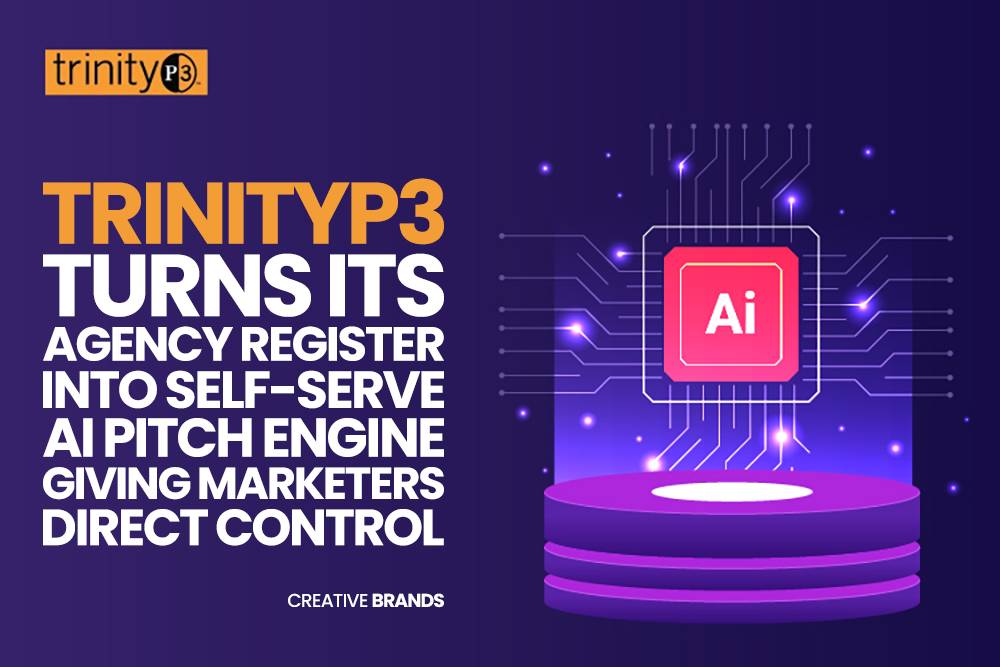TrinityP3 has launched an AI-powered self-serve platform that lets marketers directly generate tailored agency shortlists from its long-running Agency Register. Powered by Anthropic’s Claude, the tool replaces guesswork and Google searches with deep capability-based matches, offering faster, more transparent pitch preparation at a subscription cost of AU$495 per month.

Darren Woolley has spent nearly two decades helping brands pick the best agencies. Now, he is handing them the controls. His consultancy TrinityP3 has officially launched an AI-powered platform that allows marketers to run their own agency pitches directly — without waiting for a consultant-managed selection process — by tapping into one of the industry’s most rigorously maintained private databases.
The first phase, now live in Australia, transforms what was once a closed internal tool — TrinityP3’s Agency Register, created quietly in 2007 — into a subscription-based self-serve portal that uses AI to recommend a shortlist of agencies in seconds, filtered against criteria that would normally require weeks of manual research.
Unlike agency directories that marketers typically Google their way through — limited to surface-level facts such as contact details or office locations — the TrinityP3 system goes under the hood. It uses client category match, staffing ratio intelligence, retainer/project history and sector-specific track record to infer real operational suitability.
Woolley, founder and CEO says the product was born out of blunt data. While shaping TrinityP3’s upcoming 2025 State of the Pitch survey, the team realised only one in five pitches today are being run by consultants. The rest are handled directly by marketers and their procurement teams — often with limited access to trusted agency intelligence.
“They are still relying on referrals or doing broad Google searches,” Woolley said. “That only gives them the surface-level stuff. The real insights — an agency’s scale, capability, retained client mix — that’s the buried information.”
The new platform, now driven by Anthropic’s large language model Claude, was vetted against six different AI engines before launch — but Claude’s ability to interpret nuanced prompts and distinguish subtleties like retained vs. project-only business model made it the clear choice.
The system is deliberately constrained: a maximum of eight agencies per shortlist. Woolley wants to force precision, not exhaust users with a shopping-mall result set. A marketer could simply type: “Looking for a Melbourne-based creative agency with automotive sector expertise” — and receive a refined shortlisting in seconds, which they can then narrow or widen through conversational tweaks.
Almost 2,000 agencies are already listed across creative, media, digital and PR — with Southeast Asia, the UK and US in the next expansion wave.
The business model is asymmetric. It’s free for agencies to be listed, with an optional paid verification badge confirming their details have been independently reviewed. Marketers, meanwhile, pay AU$495 per month — for up to 300 AI-generated searches.
Critically, TrinityP3 does not influence or reorder the AI’s output. Claude determines the shortlist, based purely on the data agencies submit and the search parameters entered. “This isn’t search-engine optimisation,” Woolley says flatly. “There’s no manipulation. It’s a clean AI interpretation layer.”
And no, it will not make pitch consultants obsolete.
“What this does is make the process faster, more transparent, and far more accessible,” Woolley clarified. “Marketers will still be needed to validate agencies. And for the largest, most complex pitches, consultants like us will continue to be essential.”
In effect, TrinityP3 has not built a replacement for the industry — it has built a runway.
Self-service for the wide middle. Expert-guided advisory still for the high-stakes top end. An AI accelerant to eliminate wasted hours at the start of every pitch — the dull part. The part that has historically been guesswork.
For an industry that prides itself on precision targeting, Woolley is betting marketers are finally ready for precision matching.
Discover more from Creative Brands
Subscribe to get the latest posts sent to your email.





